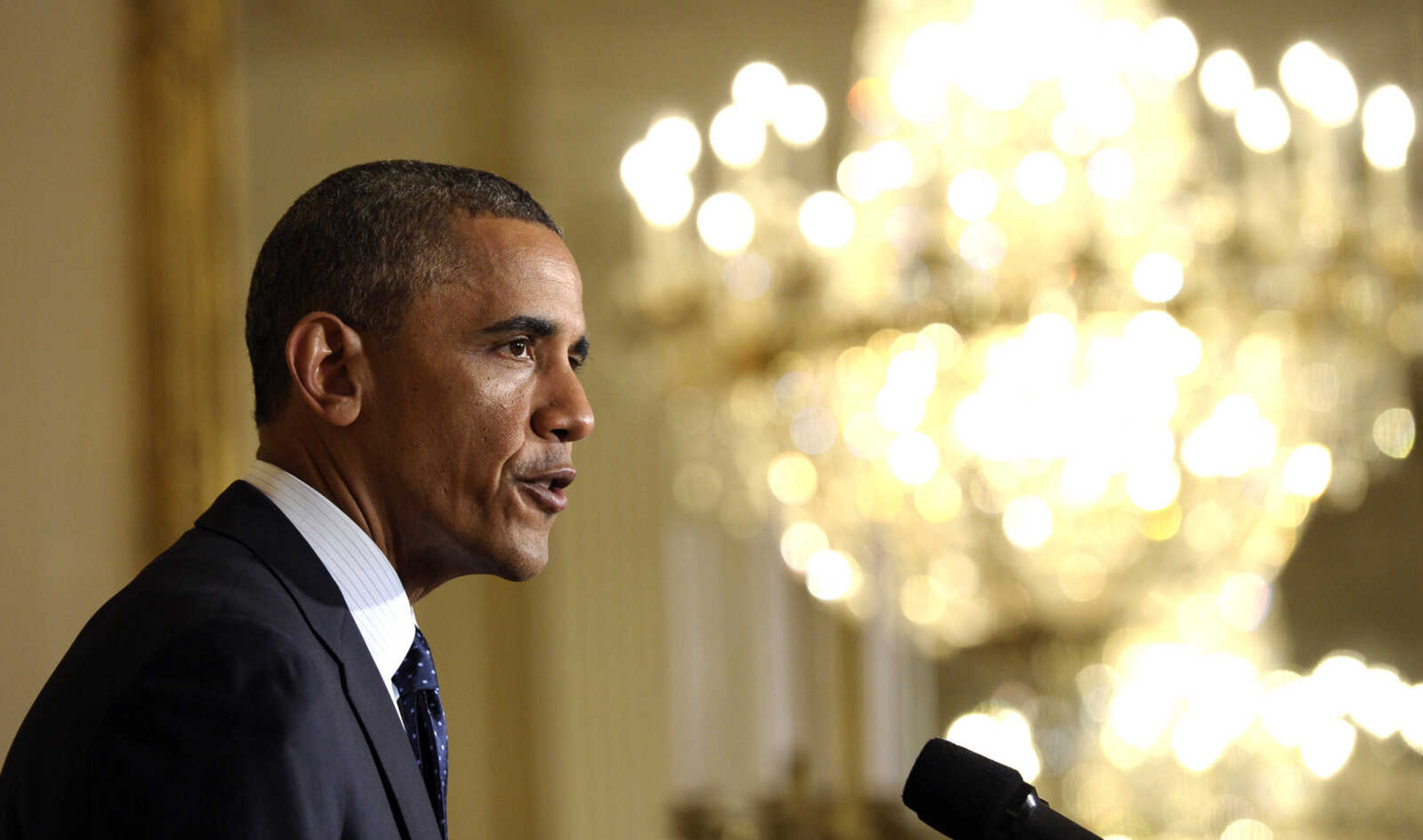Obama: No special prosecutor to investigate IRS
WASHINGTON (AP) -- President Barack Obama dismissed the idea of a special prosecutor to investigate the Internal Revenue Service Thursday, saying probes by Congress and the Justice Department should be able to figure out who was responsible for improperly targeting tea party groups when they applied for tax-exempt status...
WASHINGTON (AP) -- President Barack Obama dismissed the idea of a special prosecutor to investigate the Internal Revenue Service Thursday, saying probes by Congress and the Justice Department should be able to figure out who was responsible for improperly targeting tea party groups when they applied for tax-exempt status.
"Between those investigations I think we're going to be able to figure out exactly what happened, who was involved, what went wrong, and we're going to be able to implement steps to fix it," Obama said at a Rose Garden press conference.
Obama promised to work with Congress in its investigations, and he reiterated that he did not know that conservative groups were targeted until it became public last Friday.
"I promise you this, that the minute I found out about it, then my main focus was making sure that we get the thing fixed," Obama said. "I'm outraged by this in part because look, I'm a public figure, if a future administration is starting to use the tax laws to favor one party over another or one political view over another, obviously, we're all vulnerable."
Obama forced out acting IRS Commissioner Steven Miller Wednesday. Obama is expected to name a new acting commissioner by the end of this week.
Don't look for the controversy to subside.
Three congressional committees are investigating, and the FBI is looking into potential civil rights violations at the IRS, Attorney General Eric Holder said.
Other potential crimes include making false statements to authorities and violating the Hatch Act, which prohibits federal employees from engaging in some partisan political activities, Holder said.
On Friday, Miller is scheduled to testify before the House Ways and Means Committee. Also testifying is J. Russell George, the Treasury inspector general for tax administration.
George issued a report this week that blamed ineffective management in Washington for allowing agents in a Cincinnati office to improperly single out conservative political groups for additional, sometimes burdensome scrutiny when they applied for tax-exempt status. The practice went on more than 18 months, diminishing the ability of these groups to raise money during election cycles in 2010 and 2012, the report said.
The groups were applying for tax-exempt status as social welfare organizations. Unlike other charitable groups, social welfare organizations can engage on politics, but it is not supposed to be their primary mission.
It is up to the IRS to make the determination.
The inspector general's report said that if agents saw the words "Tea Party" or "Patriots" in an application, they automatically set it aside for additional scrutiny that could hold up approval for an average of nearly two years. The agents did not flag similar progressive or liberal labels, though some liberal groups did receive additional scrutiny because their applications were singled out for other reasons, the report said.
Ways and Means Committee members are expected to grill Miller over why he failed to tell lawmakers that conservative groups were targeted, even after the agency said he was briefed in May 2012.
At least twice after the briefing, Miller wrote letters to members of Congress to explain the process of reviewing applications for tax-exempt status without disclosing that tea party groups had been targeted. On July 25, 2012, Miller testified before the House Ways and Means oversight subcommittee but again was not forthcoming on the issue -- despite being asked about it.
In all, members of Congress sent at least eight letters to the IRS over the past two years, asking about complaints from conservative groups that they were being harassed by the IRS. None of the IRS responses acknowledged that conservative groups were targeted.
"The IRS has demonstrated a culture of cover up and has failed time and time again to be completely open and honest with the American people," said Rep. Dave Camp, R-Mich., chairman of the Ways and Means Committee. "The committee and the American people deserve honest answers from Mr. Miller at our hearing this Friday."
Miller, a 25-year career civil servant at the IRS, took over the agency in November, when the five-year term of Commissioner Douglas Shulman ended. Shulman was appointed by President George W. Bush.
At the time when tea party groups were targeted, Miller was a deputy commissioner who oversaw the division that dealt with tax-exempt organizations.
In an email to employees, Miller said: "This has been an incredibly difficult time for the IRS given the events of the past few days, and there is a strong and immediate need to restore public trust in the nation's tax agency. I believe the service will benefit from having a new acting commissioner in place during this challenging period."
The House Oversight Committee announced Wednesday that it would hold a hearing May 22, featuring Lois Lerner, the head of the IRS division that oversees tax-exempt organizations, and Shulman, the former commissioner.
The Senate Finance Committee announced a hearing for next Tuesday.
____
Associated Press writer Jim Kuhnhenn contributed to this report.
___
Follow Stephen Ohlemacher on Twitter: http://twitter.com/stephenatap
Connect with the Southeast Missourian Newsroom:
For corrections to this story or other insights for the editor, click here. To submit a letter to the editor, click here. To learn about the Southeast Missourian’s AI Policy, click here.









